Archives 75 – Dr Adrian Gregson, Current County Archivist
- 11th May 2022
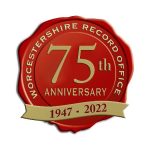
Our series sharing memories of County Archivists comes up the present, as Adrian Gregson shares his reflections. Adrian, along with Victoria Bryant and Lisa Snook, shared the County Archivist role after the formation of Worcestershire Archive and Archaeology Service. Since 2020, with the departures of Victoria and Lisa, he took on the title of County Archivist.
When I took the phone call from Tony Wherry in late May 1987, in the hallway of a house I was sharing with a bunch of vets at Liverpool University, he failed to mention that in accepting the job at Hereford and Worcester Record Office I also would stay for 35 years and end up as County Archivist! I think for that headstrong youth it may have proved too off-putting. When I told him of my elevation at a Worcester rugby match two years ago, he simply gave me a knowing smile as if it had been ordained (in-joke there).
As an archivist I covered searchroom duties in Worcester, occasionally St Helens and once a trip to Hereford, but my main area was Central Filing Supervisor. Based next to the Motorway Section in the basement in County Hall we had a wonderful view out of the window of a grass mound that rises immediately in front of you. We knew in advance when there were roadworks due on sections of the M5 and we were also next to Footpaths section, round the corner from the typing pool. Morning’s often took a while to clear, with Madge’s fags and Dave’s pipesmoke.
I had always planned to work on the records management side of the business and harboured ideas of big corporate enterprises and their exciting archives but after a few interviews over the years I realised public service was much more rewarding. Tony was a great leader, in turns miserable, funny, astute, friendly, and forward thinking. We argued, of course, but he supported my first revelatory innovation in the searchroom, introducing the self-service microfilm system. I think I may have been the first staff member to use a computer for purposes other than typing – we were very cutting edge in Central Filing. I persuaded the Office to start a series of annual History Fairs on various themes. None of this could have been possible without that support from management and colleagues.
The many and different staff were very welcoming, friendly and patient. Turned out I had practically stalked Maggie’s career, as I had worked on the same Manpower Services project in Preston Record Office she had set up 5 years earlier. Robin Whittaker’s main contribution to my career was to hand over the reins of being union steward, which was to be my main focus for 20 years, in and out of the Archives world and local industrial relations. To be honest that opportunity as steward and later Branch Secretary gave me a hugely useful grounding across all council and other public services in the county which was in itself very helpful when looking at modern records management and negotiating deposits of records from other bodies. There was great synergy in dealing with people from different backgrounds and experiences, negotiating with Chief Officers and Councillors, and then going back to the day job to persuade them to send their records for storage properly labelled with clear retention periods otherwise they’d get the straight back on their desk.
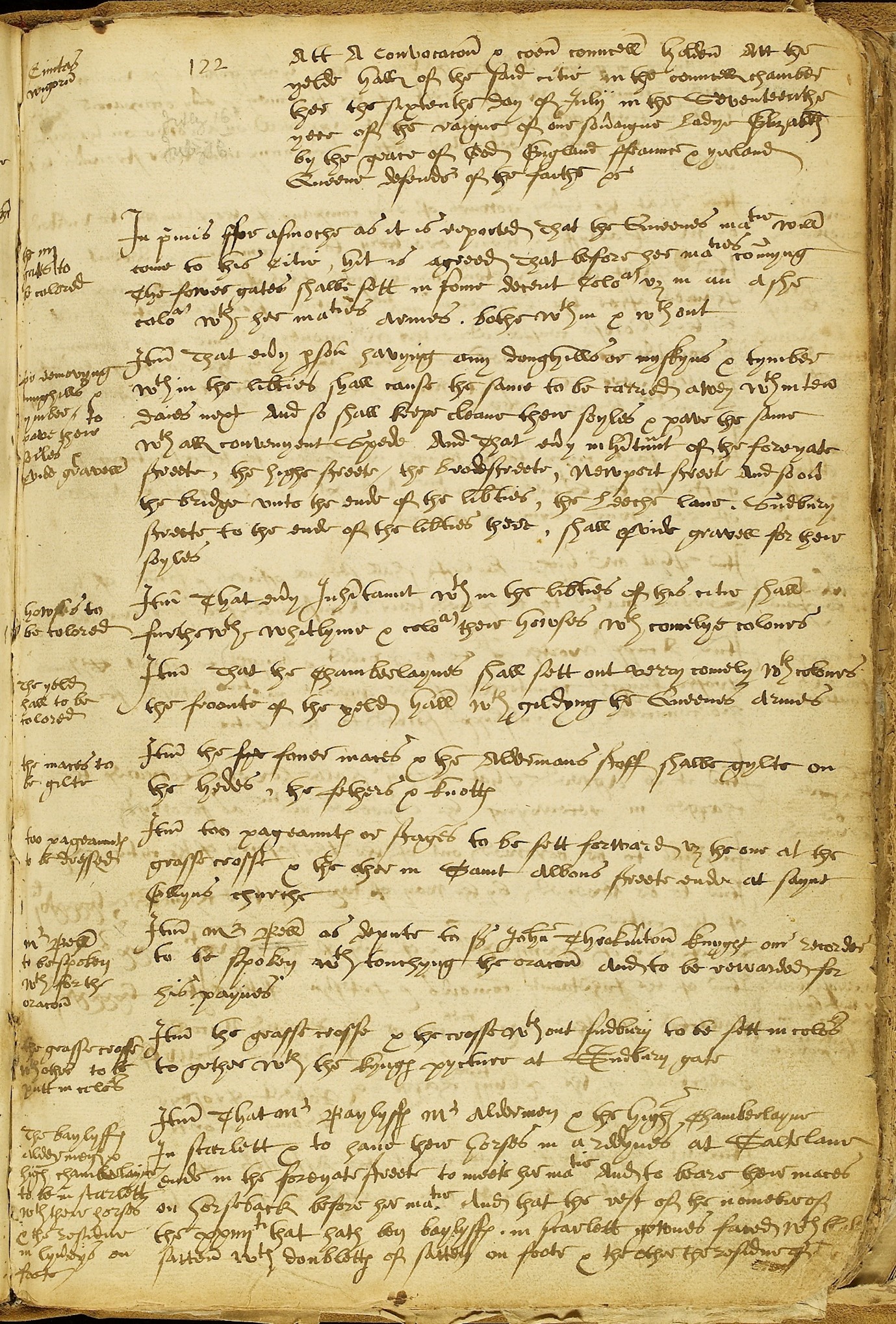
Chamber Order Book from the city archive. One of the numerous documents catalogued as part of the Worcester Archive Source project.
Ironically I met many archaeologists in this role long before we morphed into our new Service many years later!
With the Hive I came back full time to archives and have thoroughly enjoyed all of it. Working in the Hive is a place like no other – the archive staff team plus the rest of the Hive family are great to work with and have such a commitment to the values of equality and openness in public and community service. I had done a lot of project work prior to our move, winning bids for money for various things and probably because of my close affiliation with Worcester, the best of these was the cataloguing and outreach work we did on the Worcester Archive Source Project, funded by the Heritage Lottery Fund. Kat, Beth and later Justin got the concept of bringing the fantastic collection of city records to life, the whole team embraced it, and of course it could not have been so successful without the advice from Dr Pat Hughes.
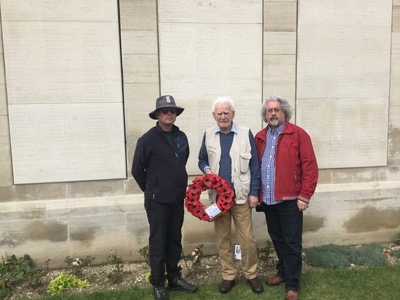
Adrian with his brother and father at the Loos Memorial in France
By then I had left modern records behind, done a few stints managing St Helens and then the History Centre in gaps between permanent appointments, so I had the experience and commitment to turn to managing cataloguing, conservation and digitisation when it came to our shiny new home. Ironically raising money to fund projects and driving our commercial side has been something I really enjoy.
My favourite and most fulfilling project so far has been the Worcestershire World War 100 Project, the largest centennial lottery funded project outside the capital. We worked across the county and across disciplines. We had national and international elements including the fantastic Fields of Battle: Lands of Peace Photographic exhibition. We produced literature, encouraged creative activity, showed films and plays, and engaged literally thousands of people over 6 years. It was hard work but very rewarding and our invitation to Buckingham Palace Garden Party was recognition for all the team who had contributed, not just inside the council, but across the piece.
The Queen was too busy to see me that day, but back in July 2012………. I jest!
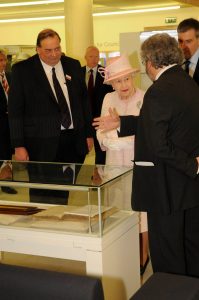
Adrian showing HM The Queen the Chamber Order Book detailing the visiting of Elizabeth I to Worcester
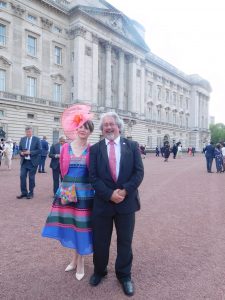
Adrian Gregson and Gillian Roberts at Buckingham Palace, representing the Worcestershire World War One Hundred project
When Lisa left me holding both arms of the service, that was another learning curve but one I think that has stood me in good stead to take on the new County and Diocesan Archivist role that I am currently doing. There are things I have to do, things I may prefer to others, things people expect you to do, but there also lots of things to enjoy and feel proud of. And as Maggie often quotes Tony’s words, if in doubt there is always the County Archivist’s’ whim to get you what you want.
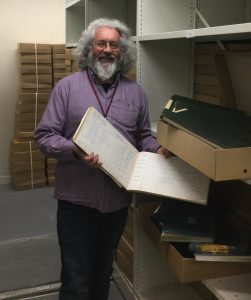
Adrian Gregson with part of the Worcestershire County Cricket Club archive. It came here in 2020 and 2021 so that it could be kept safe here in our strongrooms and could be made more accessible.
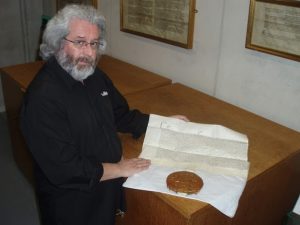
Adrian Gregson, with the 1642 Commission of Array This document, sent by Charles I to try to get Worcester to raise soldiers on his behalf, was acquired in 2018 with the help of our Friends.
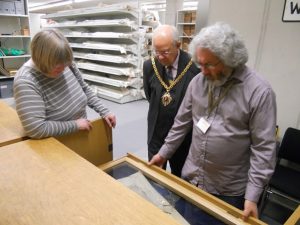
Dr Adrian Gregson shows Cllr Lucy Hodgson and the then Mayor Roger Knight one the City Charters. We hold Worcester’s Charters on behalf of Worcester City Council. We played a major role in the celebrations around the 400th anniversary of the 1621 Worcester Charter

1621 Worcester Charter
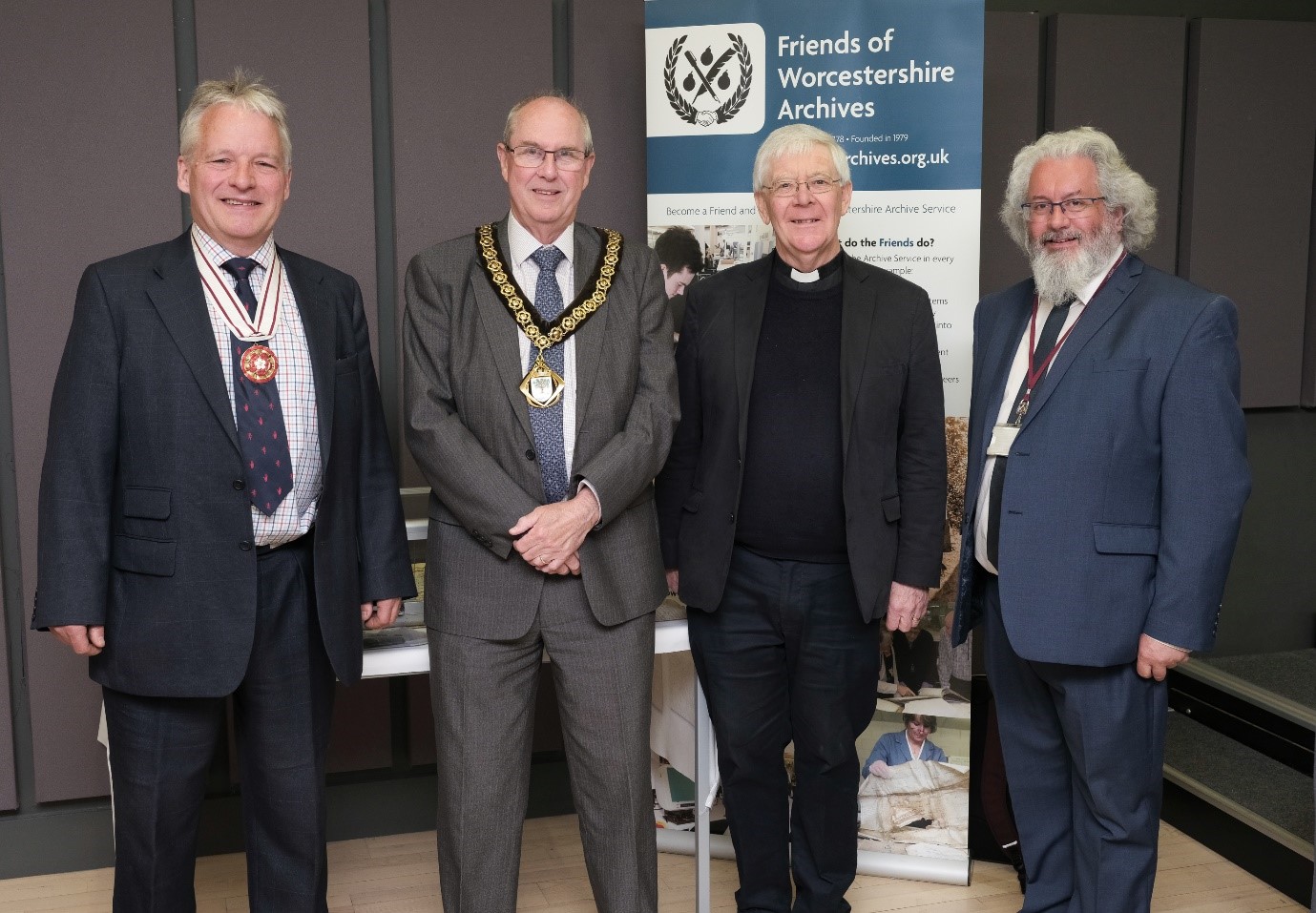
Archive 75 event – Lord Lieutenant of Worcestershire’s Deputy, Sir Nicholas Lechmere (Bt) (whose family archives are a key collection here), Chair of Worcestershire County Council Cllr Steve Mackay, Bishop of Worcester’s Chaplain Rev Stuart Currie and Adrian Gregson
Worcester Archive Source Project

During the 4 years of the project, led by Adrian, 1500 boxes were catalogued, covering 700 years about the running of Worcester City Council and it’s forerunner Worcester Corporation.
There are hundreds of volumes, maps and plans, making it of the largest collection here, and is a huge source of information about the city. From 2008-12 the collection was catalogued, making it more accessible on our online catalogue, thanks to a grant from the Heritage Lottery Fund and the assistance of volunteers.
As well as cataloguing the collection we also wanted to promote it and encourage people to use it. We particularly wanted to work with groups who wouldn’t normally think of using the archives, to show how the city collection is relevant.
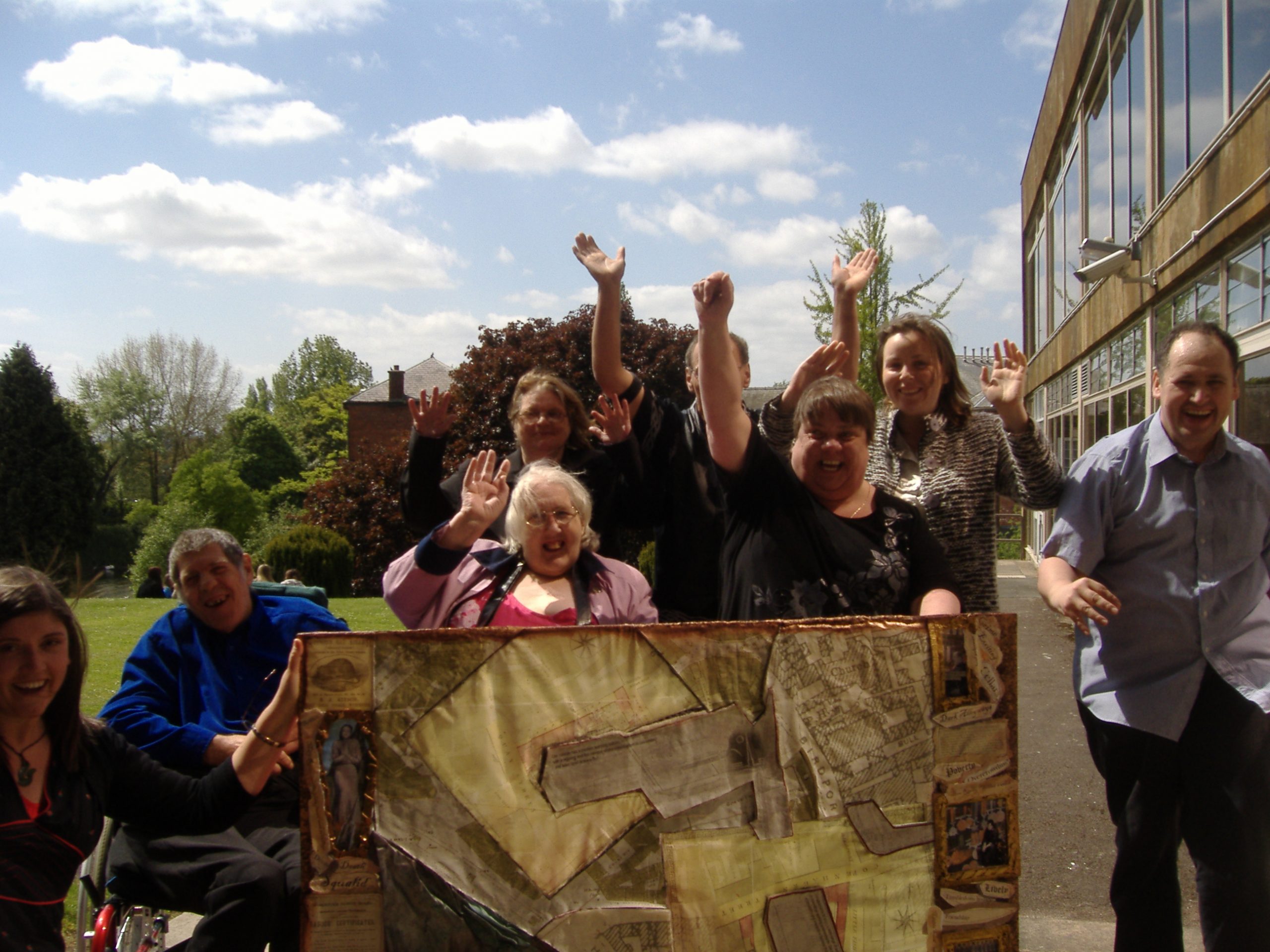
Lifestyles Group with their Map, which now hangs on the wall in one of Heart of Worcestershire Colleges Worcester buildings
We had numerous exhibitions, ran a High Street History event in association with the BBC, had a dramatic storytelling in Cripplegate Park using the archives as a source, created several education packs, ran workshops in schools, and attended several local open days and events. We worked with several local groups, running sessions over a number of weeks where we would start focusing on the city collection, especially their local area, before an artist would then work with them to produce an artwork which they could display. The members of the groups chose what this was, with many of them being based on maps. The feedback was fantastic, with people loving finding out about their local area as well and enjoying helping with the artwork. We twice won an Innovation Award from the council for the work we did as part of the project.
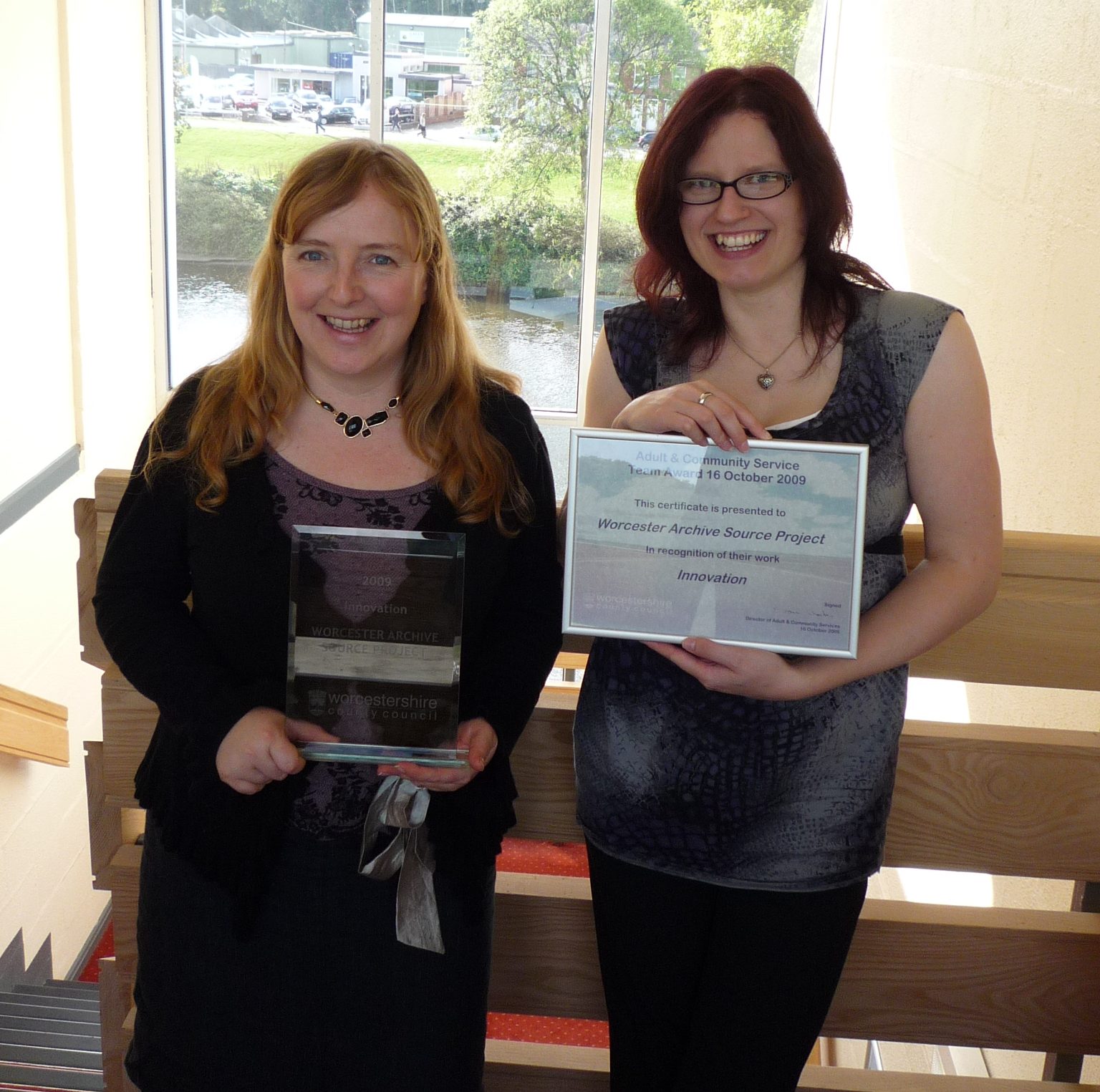
Beth Roper (Outreach Officer) and Kat Steenson (Archivist) with the first Innovation Award
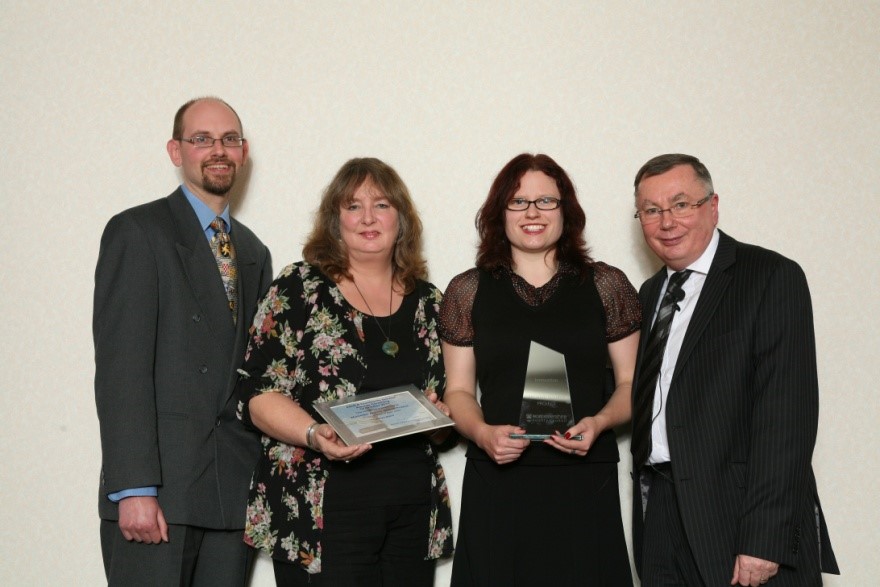
Paul Hudson (Outreach Manager), Deborah Overton (Archaeologist) and Kat Steenson (Archivist) receive the second Innovation Award from Eddie Clarke
As part of a series of events at Unity House about the history of the local area using the archives, a fabric artwork was created with the participants. They picked out some of the key themes and some the topics that resonated with their own personal histories. These pieces of artwork are on display on level 2 in the Hive
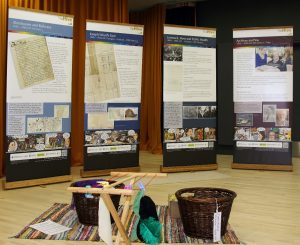
Part of Before the Hive, an exhibition about the history of the site of The Hive told through the archaeology, archives, and oral history. This was the culmination of the project.

Kasey, whose Great-Grandad was interviewed for the project, featured in the cartoon which featured in the exhibition. A magic i-pad transported her back in time!
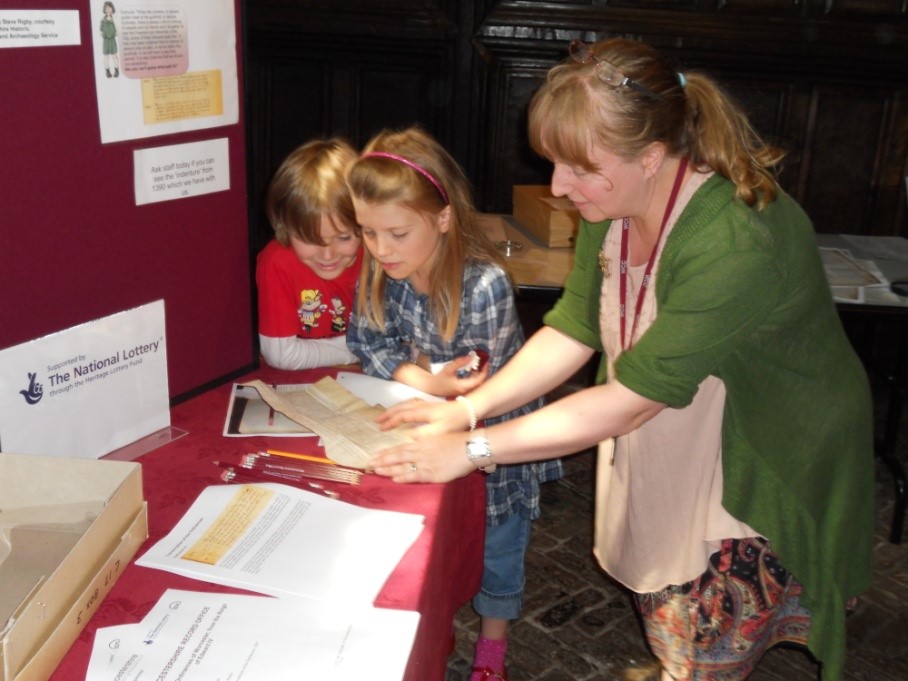
Beth Roper running a family activity at The Commandery
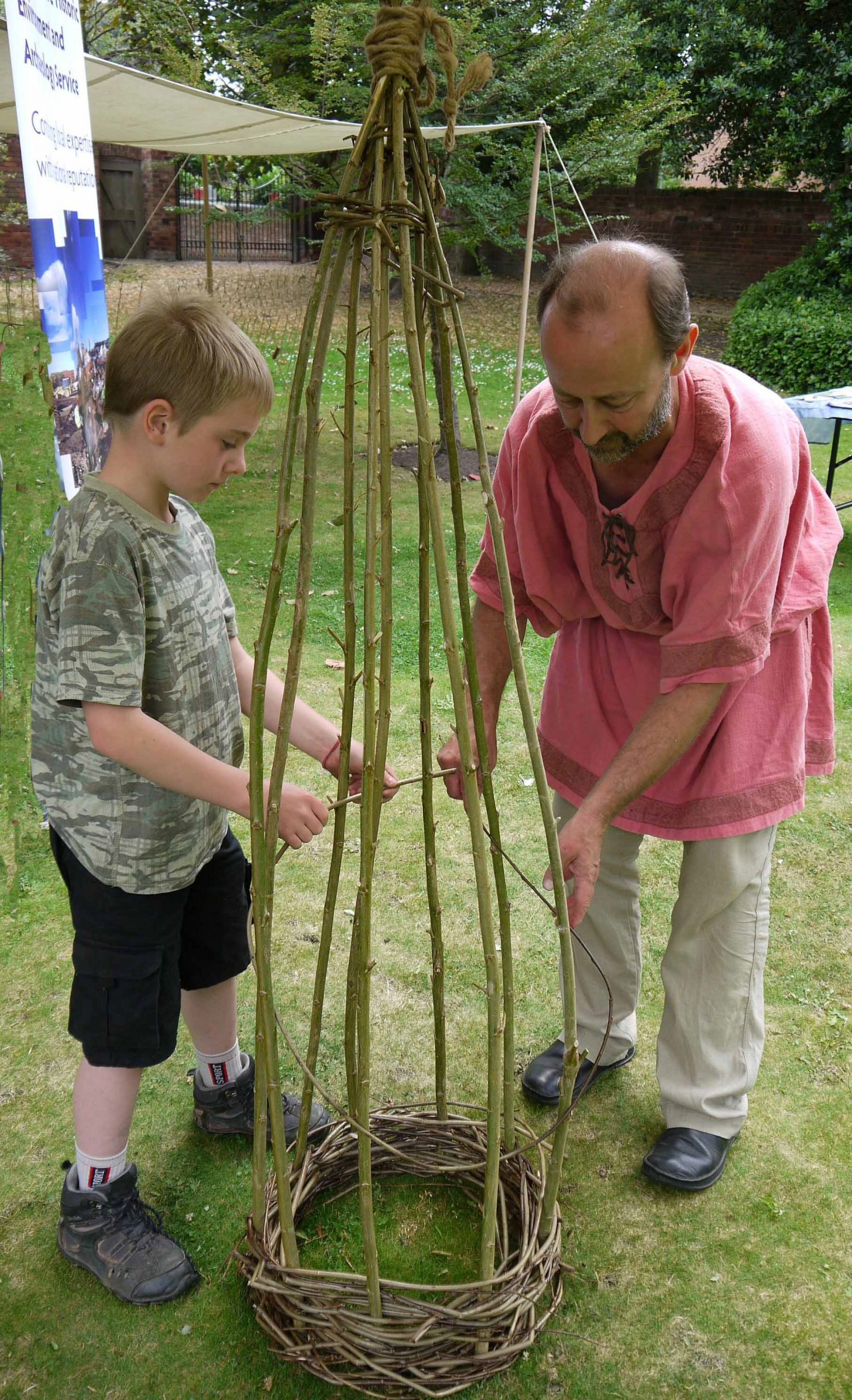
Outreach Officer Justin Hughes at an activity day at The Commandery. In among the archives were details about the Water Bailiff, who we used as one of the characters to focus on
Worcestershire World War 100

Adrian led the application to National Lottery Heritage Fund for a county wide commemoration of the centenary of the First World War. Museums, churches, local heritage societies and other partners came together to co-ordinate a programme of activity over 5 years, covering the county. It was the largest centenary project outside of London.
A website drew this information together, detailing the stories uncovered by partners. A daily article in the Worcester News, also shared on the website, documented the war day by day in relation to the county. Numerous schools workshops were run, commemorative services held, and many local events were attended. Trails relating to WWI and Worcester were created.
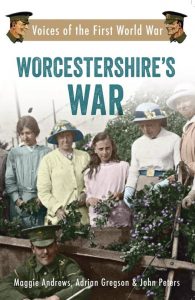
Adrian’s interest in WWI also led to him co-writing a book about the effect of the war in Worcestershire
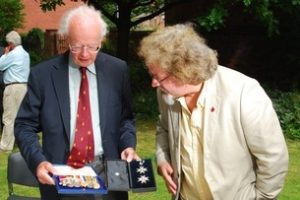
Richard Goddard speaking to Adrian about the service medals for his father Lt. Col. Henry Goddard: a Medical Officer in the RAMC and fought in both Boer and FWWs. Lt Col. Goddard’s records are at the George Marshall Medical Museum
In the archives are 21 letters by Gunner Bert Clements. To help make them more accessible, including being able to be used within school lesson, Naomi Taylor, a local students, read out the letters.
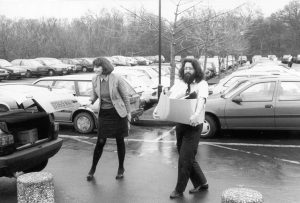
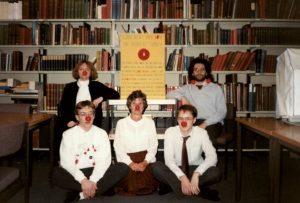
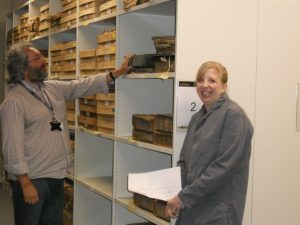
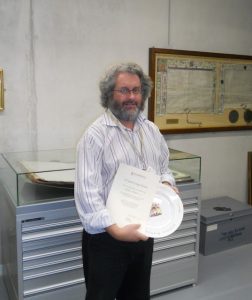
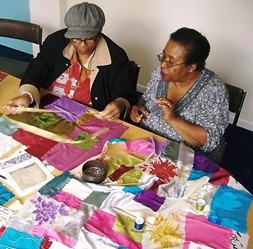
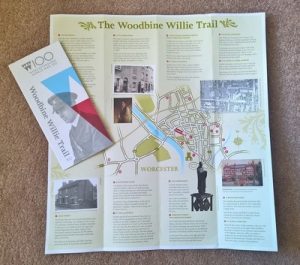
What an amazing and interesting career you have had Adrian. A huge thankyou to you and the team for keeping our precious heritage safe and allowing us access to so many wonderful documents.